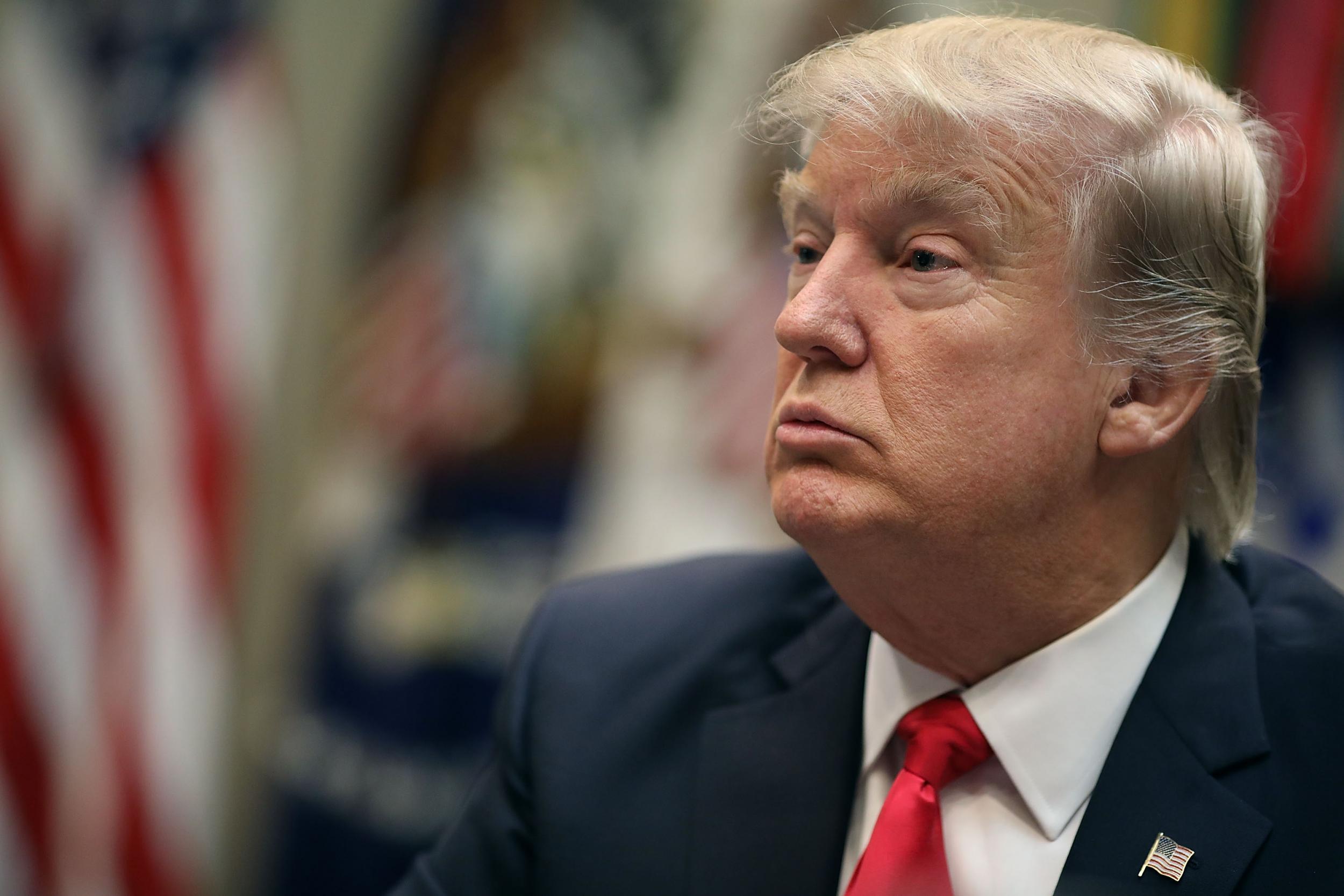Trump's 'Muslim ban' block shows that he will not always get his own way
We are nervously confident President Donald Trump cannot break the US Constitution

Your support helps us to tell the story
From reproductive rights to climate change to Big Tech, The Independent is on the ground when the story is developing. Whether it's investigating the financials of Elon Musk's pro-Trump PAC or producing our latest documentary, 'The A Word', which shines a light on the American women fighting for reproductive rights, we know how important it is to parse out the facts from the messaging.
At such a critical moment in US history, we need reporters on the ground. Your donation allows us to keep sending journalists to speak to both sides of the story.
The Independent is trusted by Americans across the entire political spectrum. And unlike many other quality news outlets, we choose not to lock Americans out of our reporting and analysis with paywalls. We believe quality journalism should be available to everyone, paid for by those who can afford it.
Your support makes all the difference.The separation of powers. It is almost the first thing every school child, in America or elsewhere in the world, learns about the US Constitution. The legislature, the executive and the judiciary. Checks and balances. Well, Donald Trump might have been invented as an exercise in didactic fiction to test the theory.
Yesterday, a Federal judge in Seattle ruled that parts of the President’s Executive Order on immigration were unconstitutional and inoperative. Today the Tweeter-in-Chief declared: “The opinion of this so-called judge, which essentially takes law enforcement away from our country, is ridiculous and will be overturned!”
This is an outrageous sentiment from the holder of the most important office under the Constitution. It puts into perspective the little local hoo-ha in Britain in November, when Liz Truss, the Lord Chancellor, was roundly criticised, including by The Independent, for failing to stand up for the judiciary. The Daily Mail had carried a front-page headline calling the judges in that case, who ruled that Parliament must vote to start the process of leaving the EU, “Enemies of the People”.
In America, the head of the government, far from failing to defend the judiciary, is leading the attack.
In Britain, Ms Truss would seem to have been stung by the criticism, because on the day last month when the UK Supreme Court published its decision upholding the ruling of the “Enemies of the People” against the Government, she issued a statement praising the top judges and celebrating their independence.
We know enough about Mr Trump to know that he will not be similarly embarrassed into paying even lip-service to the independence of the judiciary in the US. He will no doubt continue his attempt to bully and intimidate judges with his outbursts on social media, violating the spirit of the Constitution.
Yet the US system is strong. If it is being tested, we are nervously confident that it will endure. The US judicial system has been politicised to an alarming degree, and much more than the UK equivalent, despite the explicit separation of powers in the US Constitution, but most US judges will stand up to Mr Trump’s insults.
Similarly, the legislature is not going to roll over under the Trump wagon. There may be a Republican majority in both Houses of Congress, but there is no Trump majority in either of them.
The person holding the office of president may be no respecter of the Constitution, but the office itself is still constrained by it. When Mr Trump says the Seattle ruling “will be overturned” this must be translated as “the President will appeal to a higher court”.
There are now several actions and counter-actions in the US courts, and the temporary block on immigration from seven Muslim-majority countries may be suspended and reimposed several times before the question is resolved in the Supreme Court. Mr Trump has been President for only 15 days – although it seems longer – so it is too early to say whether the US Constitution is going to work as we were always taught it should.
So far, however, and despite much confusion and the disrespect of constitutional principles shown by the President, the US courts seem willing to stand up for rule of law.
Join our commenting forum
Join thought-provoking conversations, follow other Independent readers and see their replies
Comments